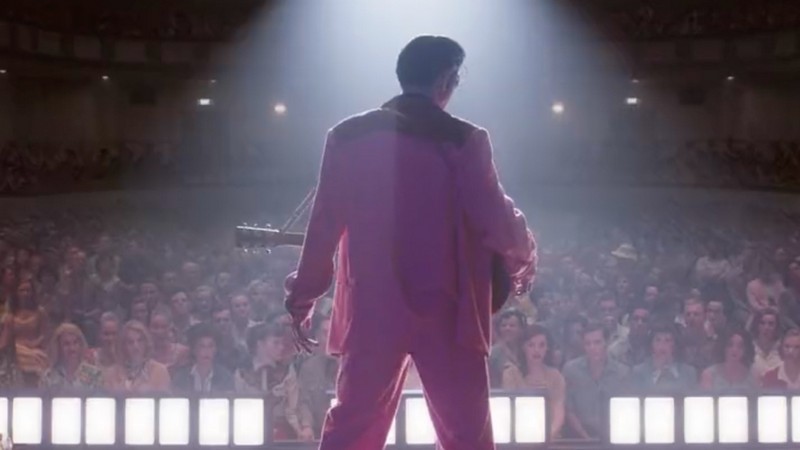Elvis lives. Well, not quite. But Baz Luhrmann has breathed new life into the legend around consummate performer Elvis Presley, the best-selling solo recording artist of all time.

Elvis the movie unfolds as a hero and villain story. The hero is obviously Presley (Austin Butler), an artist with a prodigious talent and the villain is his manager Colonel Tom Parker (Tom Hanks). The tale unfolds as Parker is lying on his death bed, reflecting on what went down and rejecting suggestions that he was responsible for the demise of The King. Instead, the Colonel maintains he made Elvis and theirs was a true partnership. We learn that the Parker was a snowman, who used every trick in the book to get others to see things his way. And he did a really good job of that … to a point. That is until Elvis wanted to spread his wings. Then the Colonel pushed back.
Even though the pair worked their way through some of that unpleasantness, the relationship was bound to end badly. Along the way, of course Elvis met and married Priscilla (Olivia DeJonge), the daughter of a US military officer.
Elvis details the highs and lows of the singer and movie star’s career. In also highlights the gambling addiction that saw Parker push Presley in a direction the latter didn’t want to go. We see the influence of African-American entertainers and gospel singers in the emergence of Elvis as a serious force in the music business. And what would a movie about Presley be without the adulation of fawning women … everywhere.
Baz Luhrmann is one of four credited writers, alongside Sam Bromell, Craig Pearce (The Great Gatsby) and Jeremy Doner. Elvis isn’t what I would call a traditional biopic. It has Luhrmann’s creative flair all over it. Another way of expressing that is that the movie is full of showmanship in depicting the life of the ultimate showman. It’s glossy and gaudy. Visually, it’s stunning. The cinematographer is Mandy Walker (Mulan). The production values are magnificent (Catherine Martin and Karen Murphy were responsible), as is Martin’s costuming.
Some events that would likely be highlighted by another director are given short shrift here. For example, Elvis quickly goes from courting Priscilla in one scene to marriage and a baby. Much more attention is paid to the Colonel’s skulduggery. The music – a mix of the real Elvis and Austin Butler – is very much on song.
So, too, the performance of Butler in the lead. He manages to capture the look and feel of Elvis. Hanks impresses as the sleazy manipulator extraordinaire. DeJonge maintains a quiet dignity as Priscilla.
I am not convinced we needed 2 hours 39 minutes to relate the story, especially as it didn’t really dig deeply into Elvis’ psyche. Rather, I got a feel for what he was about. Still, I greatly enjoyed the offering and Luhrmann’s trademark pizzazz.
Alex First
Other reviews you might enjoy:

Alex First is the editor of The Blurb. Alex is a Melbourne based journalist and communications specialist. He also contributes to The Blurb on film and theatre.





